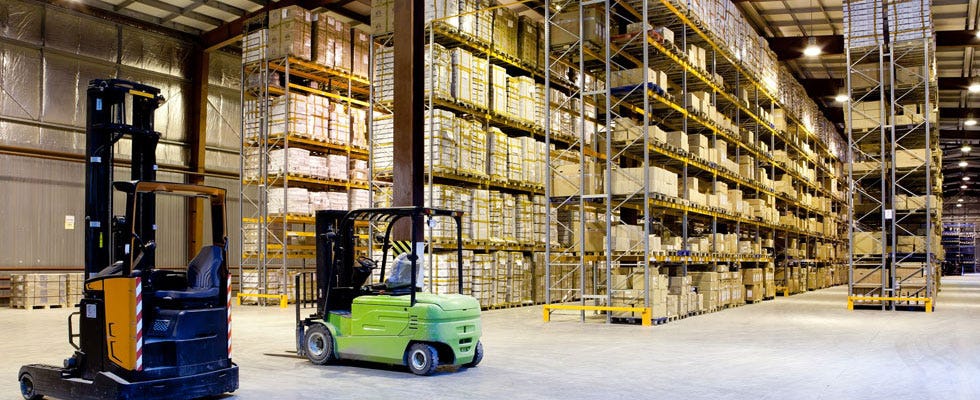Optimizing Supply Chain Excellence: The Strategic Importance of Modern Warehousing Services

The global business landscape has undergone significant transformation in recent years, with supply chain efficiency becoming a critical determinant of competitive advantage and long-term success. As companies navigate increasing customer expectations, volatile market conditions, and complex distribution requirements, the role of professional warehousing services has evolved from simple storage solutions to sophisticated logistics operations that drive business growth and operational excellence.
Modern warehousing services encompass a comprehensive range of capabilities including inventory management, order fulfillment, distribution coordination, value-added services, and technology integration that enable businesses to optimize their supply chain operations while reducing costs and improving customer satisfaction. These advanced solutions provide companies with the flexibility to scale operations efficiently, adapt to market changes, and focus on their core competencies while ensuring reliable product availability and delivery performance.
Warehousing Services: The Foundation of Efficient Supply Chain Operations
Warehousing services represent the critical infrastructure that connects manufacturers, distributors, and end customers through sophisticated storage, handling, and distribution capabilities. Modern warehousing operations utilize advanced warehouse management systems, automated equipment, and data analytics to optimize inventory placement, streamline picking processes, and ensure accurate order fulfillment that meets demanding customer expectations.
The scope of contemporary warehousing services extends far beyond traditional storage functions to include comprehensive logistics solutions such as cross-docking, kitting and assembly, quality control, returns processing, and customized packaging. These value-added services enable businesses to consolidate their supply chain operations, reduce handling costs, and improve overall efficiency while maintaining high service levels.
Technology integration plays a crucial role in modern warehousing operations, with advanced systems providing real-time inventory visibility, automated replenishment, predictive analytics, and seamless integration with enterprise resource planning and customer relationship management platforms. These technological capabilities enable businesses to make informed decisions, optimize inventory levels, and respond quickly to changing market demands.
The strategic location of warehousing facilities is essential for optimizing distribution costs and delivery times. Professional warehousing providers establish networks of strategically positioned facilities that minimize transportation distances, reduce shipping costs, and enable faster delivery to key markets. This geographic optimization is particularly important for businesses serving diverse customer bases across large geographic regions.
Warehousing Services in Riyadh: Serving the Kingdom’s Economic Center
Riyadh’s position as Saudi Arabia’s capital and largest metropolitan area makes it a crucial hub for warehousing and distribution operations serving the Kingdom’s rapidly growing economy. The city’s strategic location at the center of Saudi Arabia provides excellent connectivity to all major population centers and commercial regions, making it an ideal base for businesses seeking to optimize their supply chain operations across the Kingdom.
Warehousing services in Riyadh benefit from the city’s advanced infrastructure, including modern transportation networks, King Khalid International Airport, and ongoing development projects that continue to enhance the region’s logistics capabilities. The presence of major government institutions, corporate headquarters, and international businesses creates substantial demand for professional warehousing services across diverse industry sectors.
The Riyadh market requires warehousing providers that understand local business practices, regulatory requirements, and cultural considerations that influence successful operations in the Saudi market. Professional warehousing services in Riyadh offer specialized capabilities including climate-controlled storage for sensitive products, Halal-certified handling procedures, and integration with local distribution networks that ensure compliance with all applicable requirements.
Local businesses in Riyadh benefit from warehousing services that provide flexible storage solutions, scalable capacity, and specialized handling capabilities for various product categories including consumer goods, industrial materials, healthcare products, and technology equipment. These services enable businesses to reduce inventory carrying costs, improve cash flow, and respond more effectively to market opportunities.
Warehousing Services in Saudi Arabia: Supporting National Economic Diversification
Saudi Arabia’s Vision 2030 economic transformation initiative has positioned logistics and warehousing as strategic sectors for developing the Kingdom as a regional trade and distribution hub. Warehousing services in Saudi Arabia play a vital role in supporting this transformation by providing the infrastructure and capabilities necessary for efficient domestic distribution and international trade operations.
The Kingdom’s strategic location at the crossroads of Asia, Africa, and Europe creates unique opportunities for warehousing providers to serve regional and global markets. Saudi Arabia’s extensive coastline, with major ports on both the Red Sea and Arabian Gulf, combined with modern airport facilities and developing railway networks, provides excellent connectivity for international trade and distribution operations.
Government initiatives supporting logistics sector development include infrastructure investments, regulatory reforms, and incentive programs that encourage private sector investment in modern warehousing facilities and technologies. These initiatives create favorable conditions for businesses to establish or expand their warehousing operations while contributing to the Kingdom’s economic diversification goals.
The diverse Saudi economy, spanning oil and gas, manufacturing, retail, healthcare, and technology sectors, requires versatile warehousing solutions that can accommodate varying product characteristics, handling requirements, and distribution patterns. Professional warehousing providers in Saudi Arabia offer specialized services tailored to specific industry needs while maintaining the flexibility to adapt to changing requirements.
Units: Leading Warehousing Innovation and Excellence
Among the top companies providing comprehensive warehousing services across Saudi Arabia, Units has established itself as an industry leader through innovative solutions, advanced technology, and unwavering commitment to customer satisfaction. The company operates modern warehousing facilities strategically located throughout the Kingdom, providing businesses with reliable, efficient, and scalable storage and distribution solutions.
Units offers comprehensive warehousing services including inventory management, order fulfillment, cross-docking, value-added services, and specialized handling capabilities for diverse product categories. Their state-of-the-art facilities incorporate advanced warehouse management systems, automated equipment, and quality control processes that ensure optimal performance and accuracy in all operations.
The company’s expertise in the Saudi market, combined with international best practices and cutting-edge technology, enables them to deliver superior warehousing solutions that drive business success and competitive advantage. Visit units.sa to explore their comprehensive warehousing capabilities and discover how their innovative approach can optimize your supply chain operations and support your business growth objectives throughout Saudi Arabia.
Conclusion
The strategic importance of professional warehousing services continues to grow as businesses face increasing pressure to optimize supply chain efficiency, reduce costs, and improve customer satisfaction. In Saudi Arabia’s dynamic economy, companies that leverage advanced warehousing solutions gain significant competitive advantages through improved operational flexibility, cost optimization, and enhanced service capabilities. The future of business success increasingly depends on strategic partnerships with warehousing providers that combine operational excellence, technological innovation, and deep market expertise to deliver comprehensive solutions that support sustainable growth and competitive positioning.
Frequently Asked Questions (FAQs)
1. What are the key advantages of outsourcing warehousing operations compared to maintaining in-house facilities? Outsourcing provides access to advanced warehouse technology and infrastructure without significant capital investment, specialized expertise in inventory management and logistics operations, scalable capacity that adjusts to demand fluctuations, reduced operational overhead and fixed costs, and the ability to focus on core business activities. Additionally, professional warehousing providers offer established supplier networks, bulk service discounts, and proven processes that typically result in improved efficiency and cost savings.
2. How do warehousing providers in Saudi Arabia ensure compliance with local regulations and cultural requirements? Leading warehousing providers maintain comprehensive compliance programs that address business licensing, safety standards, labor regulations, and industry-specific requirements. They implement culturally appropriate handling procedures, maintain Halal certification for food and pharmaceutical products, provide prayer facilities for workers, and coordinate with local regulatory authorities to ensure adherence to all applicable laws and standards.
3. What technology capabilities should businesses expect from modern warehousing services? Essential technology features include advanced warehouse management systems (WMS) for inventory optimization, real-time tracking and reporting capabilities, automated picking and sorting systems, barcode or RFID scanning for accuracy, integration with client ERP and order management systems, temperature and humidity monitoring for sensitive products, and comprehensive analytics and reporting tools for performance optimization.
4. How do warehousing providers handle seasonal demand fluctuations and capacity requirements? Professional warehousing providers utilize flexible capacity models that can scale up or down based on demand patterns, maintain reserve capacity for peak periods, offer temporary storage solutions for seasonal inventory, implement dynamic staffing strategies, and provide priority handling services during high-demand periods. Many providers also offer capacity sharing arrangements and overflow handling to ensure service continuity during demand spikes.
5. What factors should businesses consider when selecting a warehousing service provider in Saudi Arabia? Key selection criteria include geographic coverage and facility locations relative to your target markets, warehouse capacity and scalability options, technology capabilities and system integration possibilities, industry experience and specialized handling capabilities, compliance expertise and certifications, service level agreements and performance guarantees, cost structure and pricing transparency, and the provider’s reputation for reliability and customer service. Additionally, consider their financial stability and long-term commitment to the Saudi market.


